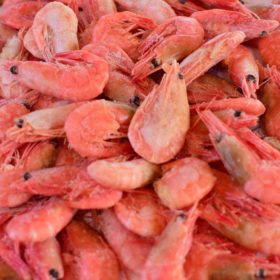Throw another prawn on the battery
Scientists led by MIT have suggested chitin, a carbon and nitrogen-rich material made from waste shrimp shells, could produce sustainable electrodes for vanadium redox flow batteries and other energy storage technologies.
The blackest black for more efficient solar cells
MIT scientists claim to have created a material 10 times more black than anything witnessed to date. It is said to be able to absorb more than 99.96% of incoming light and reflect 10 times less light than other superblack materials. The invention may be interesting for the development of black silicon PV technology and carbon nanotube-based solar cells.
America’s Green New Deal is going to happen at state, not federal level
While U.S. senators Ed Markey and Alexandria Ocasio-Cortez introduce a resolution for a clean energy package, legislation has been tabled in six states aiming to implement 80-100% clean energy by 2050 or earlier.







